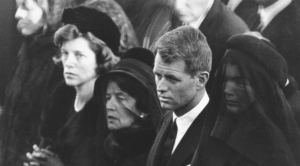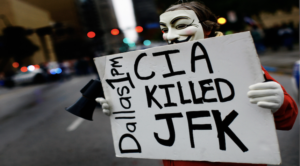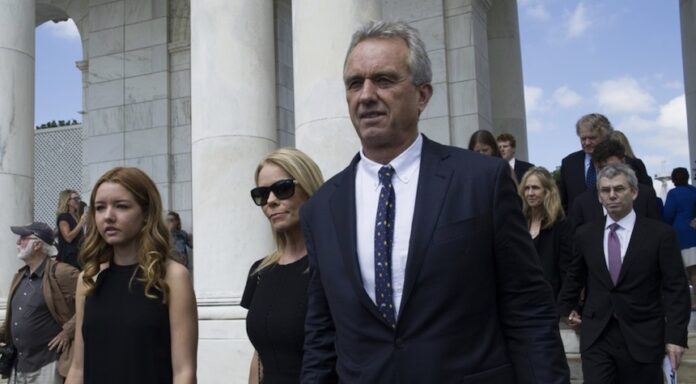Democratic presidential candidate Robert F. Kennedy, Jr., recently expressed his concerns regarding the CIA if he was elected president. Kennedy drew a parallel between his safety and the alleged CIA involvement in the assassination of his uncle President John F. Kennedy, during a podcast interview with Joe Rogan. He said:
I gotta be careful. I am aware of the danger. I’m not afraid of it. I am not stupid and I do take precautions.

Kennedy stated that he believed his uncle, President JFK was “at war” with his military and spy agencies during the tenure of the president. He also said that these agencies were trying their best to manipulate him into sending troops to places like Cuba and Vietnam. Kennedy said that his uncle was frustrated with the CIA following the Bay of Pigs and wanted to dismantle it.
He wanted to destroy the CIA. He wanted it scattered to the wind.
Kennedy claimed that JFK’s anti-war position was in conflict with the Washington war network’s purpose, saying:
You know, my uncle John Kennedy did this, he refused war. He was surrounded early by a military-industrial complex and intelligence apparatus. He realized that the purpose was to keep the military-industrial complex in a constant state of war.

These statements shed light upon the complex dynamics that existed within the U.S. Government during John F. Kennedy’s presidency and raise questions regarding the influence and power of intelligence agencies. The CIA is yet to respond to any requests for comment.
Kennedy, just days before his uncle’s inauguration said:
Eisenhower, the outgoing President of the United States, warned against the military-industrial complex three days before taking the oath.

Kennedy said that his uncle John F. Kennedy, who was assassinated in 1963, had a direct link to his decision to pull troops out of Vietnam.
He learned in October 1963 that some of the Green Berets he had sent to Vietnam were killed. In October 1963, he heard that some of his Green Berets had been killed in Vietnam. His aide told him, “75 Americans have perished.” He replied, “That’s way too many.” He then signed a national order ordering the withdrawal of all U.S. troops from Vietnam. The first 1,000 troops would be removed over the course of the month, and the remainder by the start of 1965. A month later, he died.

RFK Jr. is named after Robert F. Kennedy (commonly known as Bobby Kennedy), the father of the Democratic presidential candidate. Bobby Kennedy served as attorney general in his brother’s administration and then represented New York at the U.S. Senate. Bobby Kennedy also ran for President, just as his son, who bears the same name, is doing now.
Bobby Kennedy, who ran on a platform of anti-war, won the California Democratic Presidential Primary on June 4, 1968. Bobby Kennedy was shot dead at the Ambassador Hotel, in Los Angeles on June 5, 1968, just hours after giving a victory address. Sirhan Sirhan was a Palestinian Arab of 24 years old who murdered Kennedy. Kennedy was taken to hospital but died the next day from his injuries on June 6, 1968. His death shocked the nation, and led to an uproar of grief and sorrow, as the assassinations both of his brother JFK and Martin Luther King Jr. were still fresh in people’s minds. The motive for the assassination is still a matter of debate and speculation.

RFK Jr. is a distant second among Democratic candidates. However, his growing popularity and polling numbers have sparked discussion about the possible impact he may have on the election. It is speculated that his participation in the race may lead to the emergence of a third-party challenger, which could divert votes from incumbent Joe Biden who is expected to win the nomination. Due to an incumbent president, there will be no Democratic Party primary debates. Recent polls show that Kennedy is more popular than Biden.
Kennedy’s concerns regarding the CIA are based on personal experiences and historic events. However, their importance in the current political climate, where a majority of Americans believe that federal agencies have been weaponized at home, has yet to be fully appreciated. Kennedy’s campaign narrative will be shaped by the reactions of both public and official sources.
Watch the exchange below between Kennedy and Rogan:










